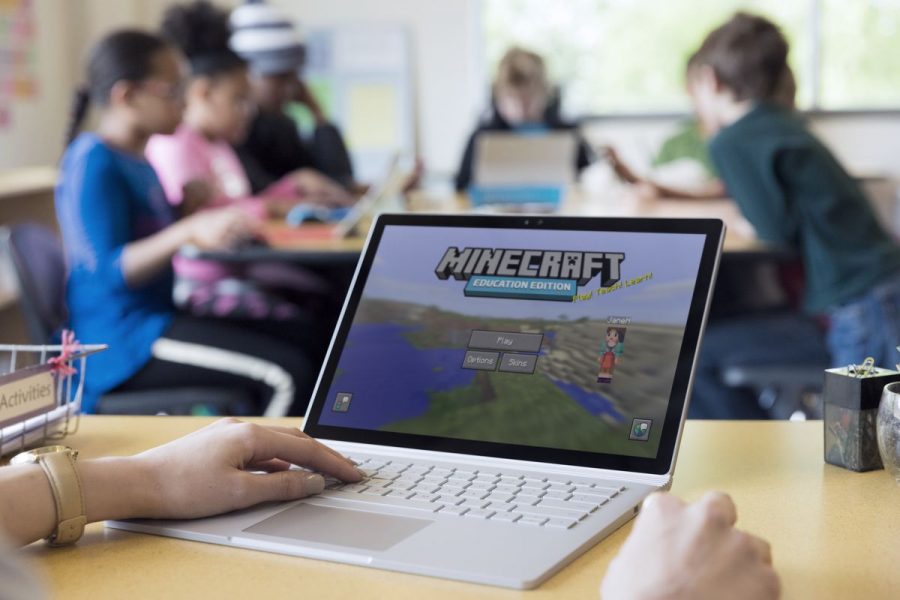It’s Not Too Late to Restart
Video games need a huge role in education
April 12, 2021
Video Games have been mainstay in history since their beginnings in 1952. From playing two player tennis on a large analog computer to now seeing almost realistic visuals on powerful consoles, they have forged deep passions in the hearts of gamers. However, video games are not as present in the education system as much as they should be.
Video games need to be implemented into the education system because they help students learn real world skills, teachers teach more efficiently, and promote opportunities after school.Real world skills are learned through the playing of video games.
According to Lashera Mcelhany, the usage of video games in the classroom have enhanced students’ critical thinking and provided motivation to push through. It is imperative for students to be able to critically think. It helps to make informed judgements, solve problems, and communicate information to others. We are often faced with adversity in life, and this can make us want to shut down and give up. With the ability to restart and save in video games, students are encouraged to tackle the obstacles or problems they face until they ultimately solve them.
Due to the avenue of skills video games provide students, teachers will also benefit greatly from using them. According to Gamelearn, teachers are able to have far more interaction and engagement with their students when using video games. Engagement in the classroom is vital for teachers. Video games offer fun and challenging experiences for students, encouraging them to participate. Interaction with the students is also greatly increased. While using game-based learning platforms such as Kahoot!, teachers are able to monitor students’ answers and clear any misunderstandings simultaneously.
Education is not only benefited during the school hours. Video games can be implemented into after school activities. Esports has been one of the fastest-growing industries in recent years, according to the District Administration. Playing on an esports team provides students with team-building skills and a sense of belonging. An esports team also creates the opportunity for students to drive their passion for video games and help them to explore careers in the Career and Technical Education (CTE) field.
There is much opposition to video games in an educational setting. According to Christopher J. Ferguson, many claim that video games promote youth violence and even contribute to events such as school shootings. This is simply not true because research shows no correlation with violent video games and the violent behavior from the youth. Family abuse, depression, and other physical and mental variables greatly impact youth violence.
To alleviate the worries of parents and concerning administrations, there could be restrictions on the rating of the video games played at school. Learning platforms and games rated up to a teen rating would be allowed. Anything else would be restricted. Administrations would also have the right to monitor games and restrict certain ones as they see fit.
The implementation of video games in education would have long-lasting benefits for everyone in the education system. There is no valid reason that video games should not be present in the classroom. Their absence from the curriculum is a missed opportunity by many administrations. Students who have a passion for video games would excel far further in school with the presence of them, and those who may not be familiar with them would still benefit from them. An education that incorporates video games is an education worth having.

